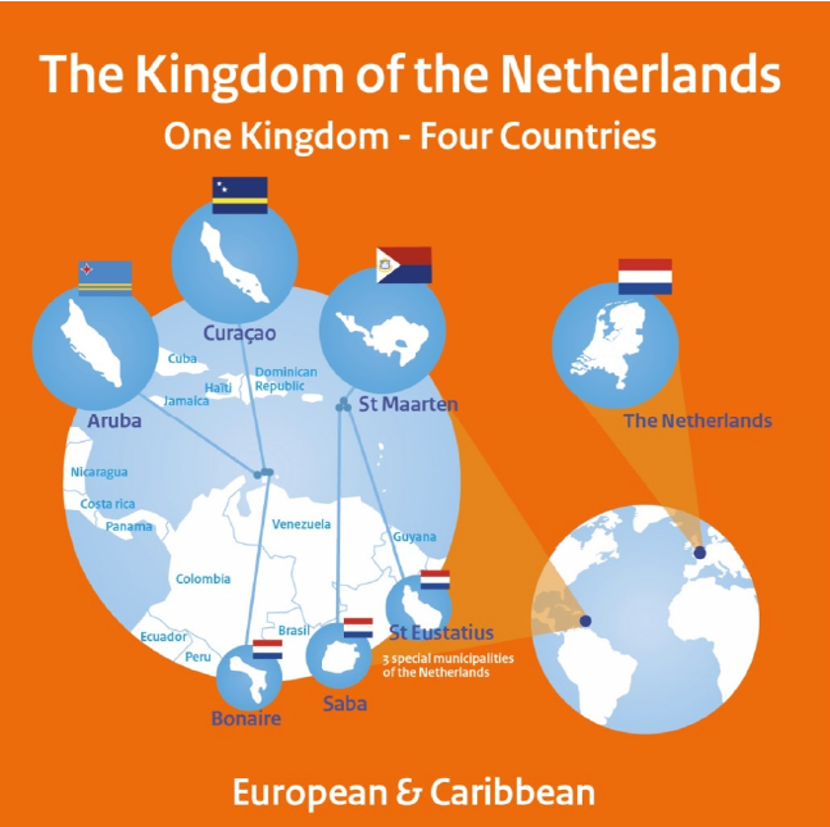Dutch elections: dispute regulation surfaces in political manifestos

PHILIPSBURG — Tomorrow, November 22, the Dutch electorate votes for a new parliament and by extension for a new government. Caribisch Netwerk analyzed the political manifestos of the participating parties and took a closer look at their plans for the Caribbean part of the kingdom.
Eleven of the seventeen parties mention the three autonomous countries (Aruba, Curacao and St. Maarten) in their programs; ten parties mention Caribbean Netherlands (Saba, Statia and Bonaire) and three parties have nothing to say about the Caribbean part of the kingdom.
According to the polls, the parties that are expected to win most of the seats are the VVD, PVV, New Social Contract (NSC) and GreenLeft/PvdA.
The intentions of these parties are obviously the most relevant since at least two of them are expected to become part of the new Dutch government.
The VVD has a couple of predictable topics in its manifesto. Citizens of the Caribbean islands are only allowed to enter the Netherlands if they have a job or if they come to study. The party also wants to add an explicit article about independence in the Kingdom Charter.
NSC wants to attach strict conditions to loans extended by the Netherlands to the Caribbean entities.
The combination of Green Left and the PvdA wants to create possibilities for Ministers Plenipotentiary and delegated parliamentarians to submit kingdom laws and to vote on them. Currently they only have the right to advise.
The two parties are also in favor of the establishment of a dispute regulation and they want a fund for the compensation of descendants of slaves. Lastly, the two parties want to create a customs-union.
The PVV does not mention anything about the Caribbean in its manifesto.
BBB (Farmer Citizen Movement) urges the state secretary for kingdom relations to focus more on the autonomous countries and less on Caribbean Netherlands. The party also wants to put customs tariffs for the Netherlands and the Caribbean islands on the same level.
D66 and the CDA, two parties who are doing poorly in the polls, remain rather vague about their intentions for the Caribbean part of the kingdom. D66 wants to make agreements in the Kingdom Council of Ministers about education, safety, sustainability, healthcare, human rights and democracy but it remains unclear what exactly the purpose of such an exercise would be. The party also wants to give the autonomous countries a larger role in diplomacy and trade relations. The Slavery Museum has to become a National Museum, the D66-manifesto states.
CDA only mentions the desire for exchange of know-how between the Netherlands and the islands and stronger cultural and economic cooperation.
Forum for Democracy sees possibilities for Dutch companies to invest in Suriname, adding that a Dutch presence in the Caribbean opens “enormous markets in South America for the Netherlands.”
The religious party SGP wants Aruba, St. Maarten and Curacao to be “as much as possible independent.” It mentions a dispute regulation as “an absolute necessity.” The party wants to give the public entities Statia, Saba and Bonaire the freedom to make their own ethical choices related to the protection of life, marriage and family. The SGP is a staunch opponent of abortion and same sex marriage.
BIJ1, the party that will go into the elections without its founder Silvana Simons, wants the Netherlands to support the islands without conditions. The party also stands for “reparation of damages caused by 400 years of colonization” and it asks attention for mental and spiritual colonization. “All ministries must be decolonized,” according to BIJ1.
The party’s program further mentions the wish to turn four dates into national holidays: March 18 (Aruban Day of the National Anthem and the flag), May 3 (Day of the Empathy – part of the commemoration on May 4 and Liberation Day on May 5), July 1 (Keti Koti) and August 17 (Dia di lucha pa libertat, Dia di Tula, Independence Day in Suriname).
###
Related articles:
Amended Kingdom Charter limits authority Kingdom Council of Ministers
Aruban parliament delayed establishment kingdom law for years
Same sex marriage debate continues at the Supreme Court


























